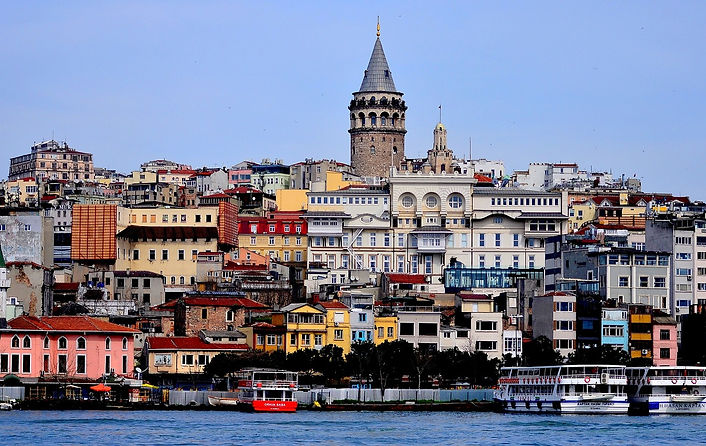Turkish Studies


A Dynamic Player on the Global Stage: Turkey in the 21st Century
Turkey, straddling the crossroads of Europe and Asia, has emerged as a pivotal player in the 21st century, marked by its vibrant economic growth, complex political landscape, and strategic geopolitical significance.
At the dawn of the 21st century, Turkey's economy was characterized by rapid growth and modernization. Under the leadership of the Justice and Development Party (AKP), which came to power in 2002, Turkey experienced a period of significant economic expansion. Reforms in the banking sector, fiscal discipline, and an open market policy attracted foreign investment and spurred development. Istanbul, Turkey's largest city, evolved into a global financial hub, symbolizing the nation's economic dynamism.
However, Turkey's economic journey has not been without challenges. The country faces persistent issues such as high inflation, unemployment, and economic inequality. The volatility of the Turkish lira, exacerbated by political instability and external economic pressures, has posed significant challenges to sustainable growth. The COVID-19 pandemic further strained the economy, highlighting the need for structural reforms and diversification.
Turkey's political landscape in the 21st century has been marked by significant transformations and controversies. The AKP, led by Recep Tayyip Erdoğan, has dominated Turkish politics for two decades, implementing widespread reforms and consolidating power. Erdoğan's tenure saw the introduction of a presidential system in 2017, which centralized executive power and altered the balance of Turkish governance.
Turkey's strategic interests extend beyond its borders, particularly in the Caucasus region. The relationship with Azerbaijan is a cornerstone of Turkey's Caucasus policy, driven by deep historical, cultural, and linguistic ties. Turkey's support for Azerbaijan was prominently displayed during the 2020 Nagorno-Karabakh conflict, where Turkish military and diplomatic backing played a crucial role in Azerbaijan's military success.
In contrast, Turkey's relations with Armenia remain tense due to historical grievances and disasters experienced during the first world war. Although there have been attempts to normalize relations, such as the 2009 protocols aimed at establishing diplomatic ties, progress has been limited. The complex dynamics of the Nagorno-Karabakh conflict further complicate Turkey-Armenia relations.
Turkey also maintains a cautious but pragmatic relationship with Georgia, focusing on economic cooperation and regional stability. The Baku-Tbilisi-Ceyhan (BTC) pipeline, which transports Caspian oil to the Mediterranean, exemplifies Turkey's strategic interest in fostering energy and trade routes through the Caucasus.
Turkey's connection with the Caspian Sea is predominantly shaped by its energy security strategy. The Caspian region is rich in oil and natural gas reserves, making it a critical area for Turkey's energy diversification efforts. The BTC pipeline and the Trans-Anatolian Natural Gas Pipeline (TANAP) are key components of Turkey's strategy to reduce its dependency on Russian energy imports and to position itself as an energy corridor between the Caspian and Europe.
The TANAP project, part of the Southern Gas Corridor, transports natural gas from Azerbaijan's Shah Deniz field through Turkey to Europe. This pipeline not only enhances Turkey's energy security but also strengthens its geopolitical influence as a transit country. Turkey's involvement in the Caspian energy projects underscores its ambition to be a critical player in regional energy dynamics and to foster stronger economic ties with the Caspian states.
Turkey's foreign policy in the 21st century is characterized by a blend of assertive regional engagement and complex alliances. The country has sought to expand its influence in the Middle East, the Balkans, and Africa, leveraging its economic and military capabilities. Turkey's involvement in the Syrian conflict, its military presence in Libya and Qatar reflect its aspirations for regional leadership. However, Turkey's assertive foreign policy has also led to tensions with traditional allies, including the United States and the European Union.
What are we doing as Turkish Studies?
-
Turkey's Development Plans
-
Migration and Integration Policies
-
Energy Policies
-
Turkey and the Belt and Road Initiative (BRI)
-
European Union Membership Process


